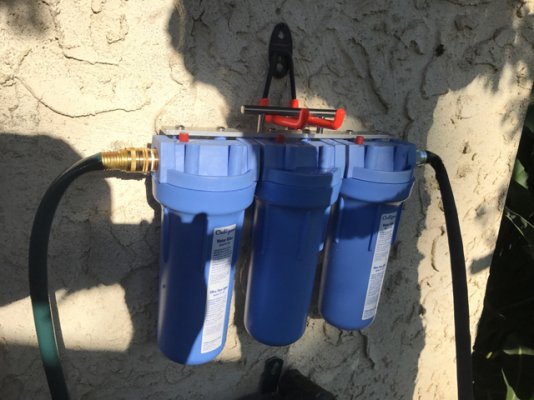RO is all you need for spotless water, DI can be harmful on plastics and rubbers if your tds gets around the 0 area. The water gets so pure so to say it wants to absorb something and can do harm to plastics/rubber causing them to dry out/crack prematurely.
That is not true. DI water has been used for many years for washing cars. I know from using it that it will not remove the
wax or sealant on the paint, so it is not going to pull anything out of the trim.
Plastic and rubber trim gets damaged from UV exposure, and oxidation. Which is why you should use a
trim conditioner to provide protection from UV and oxidation.
Your statement does not make any sense, since in order for an RO system to prevent water spots, then the TDS would have to be zero, or close to it.
If there are dissolved minerals in the water (TDS>0), then you will get spots. The spotting will not be as severe with lower TDS.
It is also important to realize that there are all kinds of RO filters on the market, for vastly different uses. RO membranes for drinking water will not result in TDS=0, in fact, some will have TDS high enough to cause serious water spotting or etching to the clear coat. So people should be careful just buying generic filters from Amazon or Ebay, without understanding what the filter actually does.
That is why the guys with reefs (and I used to be a reefer too) have RO/DI filters. The RO membrane would remove most the TDS, but not all, then the DI resin would remove the rest of the TDS. This makes both the RO membrane and DI resin last longer. Only downside is the wasted water with the RO.
You really need to get a TDS meter and test your RO water. If you rinse without drying, and get no spotting, then the TDS has to be very low or zero.


